
To check out what everyone has received over the last week, visit the blog and check out the links. Leave yours too.
Also, each week, Leslie, Vicki, and I will share the Books that Caught Our Eye from everyone’s weekly links.
Here’s what I received:
The Hermit by Thomas Rydahl, translated by K.E. Semmel, for review.
A car is found crashed on a beach in the Canary Island resort of Fuerteventura. In the trunk is a cardboard box containing the body of a small boy — no one knows his name, and there is no trace of a driver.
The last thing Fuerteventura needs is a murder. The island’s already got half-empty bars and windswept beaches, and the local police are under pressure to cut the investigation short.
But long-time islander Erhard, who sees more than most people, won’t let the investigation drop — and he has nothing to lose. He has severed ties with his wife and child in Denmark and has cut himself off from the modern world.
The question is: can an old man who knows nothing about mobile phones, the internet or social media possibly solve a murder in the modern world, especially one that stretches far beyond the sandy beaches of Fuerteventura?
Snow White and Rose Red by Patricia Wrede, which I purchased for book club.
Snow White and Rose Red live on the edge of the forest that conceals the elusive border of Faerie. They know enough about Faerie lands and mortal magic to be concerned when they find two human sorcerers setting spells near the border. And when the kindly, intelligent black bear wanders into their cottage some months later, they realize the connection between his plight and the sorcery they saw in the forest.
Amazon Kindle Freebies:
An American Airman in Paris by Beatriz Williams
Octavian Rofrano has never met the girl whose photograph was his constant companion through the long days and nights of the Great War. The promises he made to himself and that far-away image in the silence of his cockpit have never left him, but the anguish and loneliness of post-Armistice Paris has crept into his bones. One night, Octavian finally decides to lose himself in the sad beauty the City of Lights offers, but as reminders of that 11th day of November fill his mind, can he let go of past hopes or does the promise of salvation still have a hold on him?
Lizzy and Jane by Katherine Reay
Elizabeth left her family’s home in Seattle fifteen years ago to pursue her lifelong dream—chefing her own restaurant in New York City. Jane stayed behind to raise a family. Estranged since their mother’s death many years ago, the circumstances of their lives are about to bring them together once again.
Known for her absolute command of her culinary domain, Elizabeth’s gifts in the kitchen have begun to elude her. And patrons and reviewers are noticing. In need of some rest and an opportunity to recover her passion for cooking, Elizabeth jumps at the excuse to rush to her sister’s bedside when Jane is diagnosed with cancer. After all, Elizabeth did the same for their mother. Perhaps this time, it will make a difference.
As Elizabeth pours her renewed energy into her sister’s care and into her burgeoning interest in Nick, Jane’s handsome coworker, her life begins to evolve from the singular pursuit of her own dream into the beautiful world of family, food, literature, and love that was shattered when she and Jane lost their mother. Will she stay and become Lizzy to her sister’s Jane—and Elizabeth to Nick’s Mr. Darcy—or will she return to the life she has worked so hard to create?
Yes, Mr. Darcy by J. Dawn King
Elizabeth Bennet’s girlish dreams of love and romance are shattered. Her father has decided she will be the one to secure her family’s future through a marriage of convenience to his heir. Disappointment and sadness weigh her soul when she travels with her aunt and uncle—a consolation before she submits to duty. When she sees the reflection of her heartbreak in the face of an unknown young lady, Elizabeth reaches out to the girl, extending a hopeful outlook she herself has been denied. Mr. Darcy regrets missing the opportunity to know the pretty stranger who helped his grieving, younger sister rise above her sadness. Hope keeps him seeking her face in every crowd. As time passes it seems the woman he admires might be an ephemeral dream born of his heart’s desire. Darcy finally finds her when he is forced to visit his friend, Mr. Bingley, but is she already taken? Can he restore hope to this woman he barely knows? Will she let him?
Lost to the Ocean by Melanie Schertz
Elizabeth Bennet and Georgiana Darcy were friends of long standing when they ventured a trip together to Ramsgate. While there, they are kidnapped by George Wickham, taken on a waiting ship which was to take them to Portugal. But these plans are waylaid by a storm which destroys the ship, leaving the young ladies on the shores of war torn France. While Georgiana’s brother rushes to find them, could there be someone still in England who was mysteriously behind Wickham’s behavior?
Mister Darcy’s Dogs by Barbara Silkstone
Doctor Lizzie Bennet, struggling against her conservative English countryside upbringing, determines to prove her worth as a dog psychologist. Nothing will deter her from her career until she meets the uppity and oh-so mysterious Londoner, Mister Darcy. His on-again, off-again flirtatious manner, and his pompous putdowns challenge Lizzie’s short temper. When Mister Darcy hires her to train his lovable basset hounds for an important foxhunt, Lizzie accepts the task despite knowing next to nothing about the sport and harboring an intense fear of horses.
Two of the villains Austen fans love to boo and hiss arrive to torment Lizzie: Caroline Bingley, in hot pursuit of Mister Darcy does all she can to discredit and humiliate Lizzie. Mister Darcy’s old nemesis, George Wickham, stalks the Bennet family.
My Own Mr. Darcy by Karey White
After being dragged to the 2005 movie Pride and Prejudice by her mother, sixteen-year-old Elizabeth’s life changes when Matthew Macfadyen’s Mr. Darcy appears on the screen. Lizzie falls hard and makes a promise to herself that she will settle for nothing less than her own Mr. Darcy. This ill-advised pledge threatens to ruin any chance of finding true love. During the six intervening years, she has refused to give any interested suitors a chance. They weren’t Mr. Darcy enough.
Coerced by her roommate, Elizabeth agrees to give the next interested guy ten dates before she dumps him. That guy is Chad, a kind and thoughtful science teacher and swim coach. While she’s dating Chad, her dream comes true in the form of a wealthy bookstore owner named Matt Dawson, who looks and acts like her Mr. Darcy. Of course she has to follow her dream. But as Elizabeth simultaneously dates a regular guy and the dazzling Mr. Dawson, she’s forced to re-evaluate what it was she loved about Mr. Darcy in the first place.
Devour (book 1) by Shelly Crane
Clara has it all.
A wrestling-star boyfriend, she’s popular, tons of friends, all the right school activities, pretty much a perfect life…up until her parents died. Now she lives with the town pastor and his family, and though they take good care of her, she feels alone in a crowd of people.
But when a new guy comes to town, Clara is fascinated with him, no matter how much she tries to fight it, and her carefully constructed, perfect little world begins to crumble. And then things take a turn for the…unexplainable. Eli confesses to her that she gives him something he’s never had before, something he needs.
Everything is about to change for this normal, pretty, popular girl in a supernatural way.
Queen of Someday (book 1) by Sherry Ficklin
Before she can become the greatest empress in history, fifteen-year-old Sophie will have to survive her social-climbing mother’s quest to put her on the throne of Russia—at any cost.
Imperial Court holds dangers like nothing Sophie has ever faced before. In the heart of St. Petersburg, surviving means navigating the political, romantic, and religious demands of the bitter Empress Elizabeth and her handsome, but sadistic nephew, Peter. Determined to save her impoverished family—and herself—Sophie vows to do whatever is necessary to thrive in her new surroundings. But an attempt on her life and an unexpected attraction threatens to derail her plans.
Alone in a new and dangerous world, learning who to trust and who to charm may mean the difference between becoming queen and being sent home in shame to marry her lecherous uncle. With traitors and murderers lurking around every corner, her very life hangs in the balance. Betrothed to one man but falling in love with another, Sophie will need to decide how much she’s willing to sacrifice in order to become the empress she is destined to be.
Dark Desires (book 1) by Eve Silver
Betrayed by those she trusted, penniless and alone, Darcie Finch is forced to accept a position that no one else dares, as assistant to dangerously attractive Dr. Damien Cole. Ignoring the whispered warnings and rumours that he’s a man to fear, she takes her position at his eerie estate where she quickly discovers that nothing is at it seems, least of all her handsome and brooding employer. As Darcie struggles with her fierce attraction to Damien, she must also deal with the blood, the disappearances … and the murders.
With her options dwindling and time running out, Darcie must rely on her instincts as she confronts the man she is falling in love with. Is he an innocent and misunderstood man … or a remorseless killer who prowls the East End streets?
Snowy White World to Save by Stephanie Lisa Tara
Where has mother gone? Mothers don’t leave. Mothers stay, forever. Mothers are like redwood trees, those special forever trees that grow hundreds of feet high and live for thousands of years. Mothers read storybooks aloud. They know the power of a story. Power that can even make the wrong-beats of a child’s heart go away.
Maybe the monarch butterfly was right? Perhaps they should make the journey. The one that was too long, and too far, for a girl with a wrong-beating heart. Yet there was someone in the redwood forest that Eliza just knew could help. Not just any someone. Another mother. The first mother. The one, Eliza’s own mother had spoken of. Great Mother Redwood. The very first, the oldest and wisest redwood tree of them all. She, who started the forest thousands of years ago, might know where mother had gone. It seemed impossible. To find one who had never been seen, one who had only been spoken of? Yet. Mothers dont leave. They are like redwood trees. They stay, forever.
Eliza decided she must try. She would put one foot in front of the other, slowly. She would take small steps. She knew the butterfly would be patient alongside her. Down the path. To the forever trees.
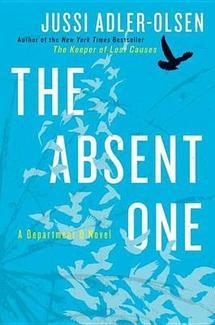
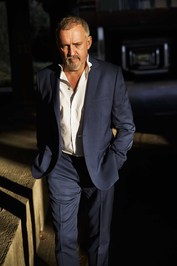 About the Author:
About the Author:
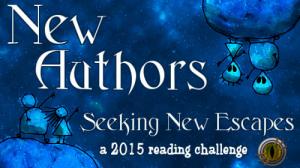

 About the Translator:
About the Translator: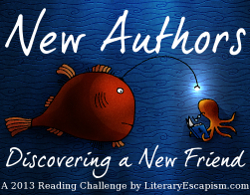




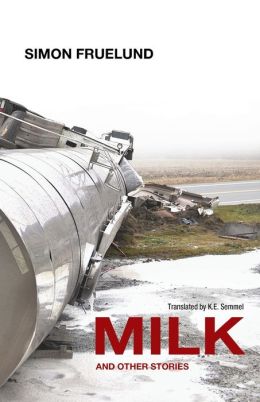


 About the Author:
About the Author:




 In addition to our book club meeting at the store, we’ll be attending a reading and discussion from two great translators, one of whom I consider a friend, and a poet whose work was translated. If you are in the Clarksburg, Md., area, please stop by Novel Places to interact with Danish Poet Carsten Rene Nielsen and his translator David Keplinger as they talk about their work on House Inspections.
In addition to our book club meeting at the store, we’ll be attending a reading and discussion from two great translators, one of whom I consider a friend, and a poet whose work was translated. If you are in the Clarksburg, Md., area, please stop by Novel Places to interact with Danish Poet Carsten Rene Nielsen and his translator David Keplinger as they talk about their work on House Inspections.


